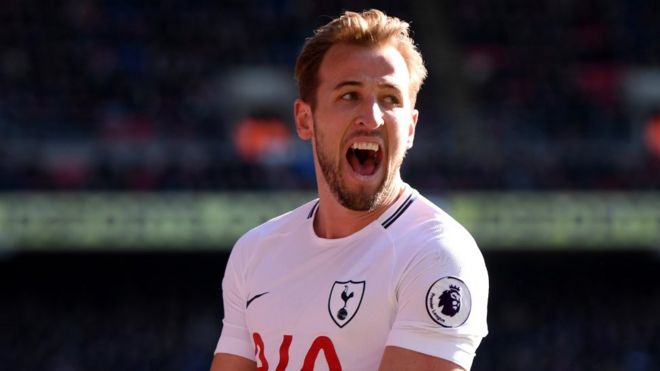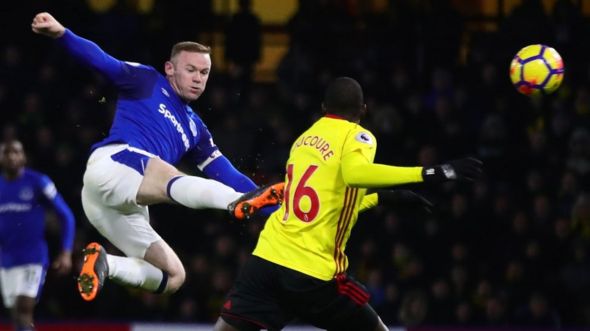



The discovery and development of a potential multi-million pound footballer is never smooth or straightforward.
But for professional clubs, finding a young gem who can go on to be a star player, or alternatively be sold at great profit, is good business.
That is particularly true in an era when financial fair play rules across Europe are encouraging clubs to balance the books and nurture home-grown talent.
At Spurs, Harry Kane was valued earlier this year at £172m – not bad for a player who was signed as a teenager for no fee.
That is why top Premier League clubs in England are increasingly using data both to try and discover young players, and also to help develop their playing and physical progress from a young age.
However, as a scout who helped bring England goal-scoring star Harry Kane to Tottenham Hotspur reveals, it can be an inexact process, and one in which coaching staff also have to use human qualities and intuition to unearth star material.
“One of the coaches said to me bluntly ‘who is that fat kid?’,” recalls Richard Allen, former head of academy recruitment at White Hart Lane, of Kane’s first days at Spurs as a youngster.


Mr Allen says Wayne Rooney was obviously destined for the top
“Harry was eleven at the time, and the truth is he would not have got in the building if we were using physical testing as a determinant.”
Allen, a highly-rated talent spotter who spent eight years at Spurs and who has also worked for QPR and the English FA, says it is hard to immediately identify youngsters who have such high potential they are almost certain to go on to success at the top of the game.
Harry Kane with the Golden Boot
“Michael Owen and Wayne Rooney definitely, and Joe Cole was also highly thought of by many,” he says.
“But players come through in different ways and at different ages. Physically maturing affects high performance at an early age, but others may catch you up.”
Fortunately for Kane, not only Allen – now director of football at Loughborough University – but other coaches at Tottenham sensed there was something about the youngster.
However, Allen says that when coaches were assessing what the factors in Kane’s favour were, they were not particularly scientific or numbers driven.
Spurs coaches noted that Kane struck the ball cleanly
“So, why did we decide to sign him, because his performances were not always at that high level?” asks Allen.
“Firstly, his ball striking was good, he always scored goals. He could hit the ball cleanly and he could score, so he was good technically.
“Another thing was, his father was big, so although Harry was fairly little when he was young, maybe he would grow up to be big like his dad.
“He was also really committed, he worked hard and was a good learner – he would pick up new things early and had a thirst for knowledge.”
Richard Allen left the FA in October to take up his new role at Loughborough University
Kane was fortunate that the coaches at Spurs took into consideration the skewing factors of the relative age effect in children’s and youth football, Allen says.
That is the effect whereby children in school years who were born between September and December tend to get chosen for teams because they are more physically mature to those born the following spring or summer.
“Harry was born in July, which meant the coaches gave him a bit more leeway,” says Allen, who was attending a Sports Analytics Innovation conference in London.
However, Allen says alarm bells were raised in the club regarding Kane’s progress when he was 16.
And, although he made his Spurs debut aged 18 in the Europa League campaign of 2011-12, most of his playing time around this age was via a series of loans to different clubs – Leyton Orient, Millwall, Norwich City and Leicester City.
Kane (in blue of Leicester City) was loaned out to a number of clubs in his teens
When the Leicester loan ended at the close of the 2012-2013 season, Allen says Spurs were considering cashing in on the teenager by looking to make Kane’s next loan arrangement a “loan leading to a sale”.
Allen also says that Kane’s appearances for the England Under-20s at the Fifa World Cup in Turkey that summer had not been particularly successful either.
However, Kane went into the Spurs team for Europa League games again at the start of the 2013-14 season, and after Tim Sherwood took over as manager in the middle of that season the forward was handed his Premier League debut in April 2014.
“Since being given that chance he has not looked back,” says Allen. “And to be fair to Harry, he has continued to go forward and grow and develop from then on.”
And according to Allen, as a person Kane has also become a forceful figure within the dressing room.
“He is displaying what is described as elite behaviours – traits and characteristics shared by top sports people. He has become a leader in setting the tone to new players about what being a Tottenham player is all about, and what standards are expected,” says the former head of QPR’s academy.
“He has also physically grown and looks powerful.”
Allen, who at the FA worked with male and female teams from U-15s to first elevens, obviously believes there is a role for data in player development, but that it has to be used sensibly.
“The more data-rich you are the better. If you can get as much information about the players in all areas the better,” he says. “That includes physical, performance, and psychological.
Data can be one tool to assist a coach with player development, says Allen
“But data and analytics are just one factor. For example it can be useful in finding a player’s weaknesses so that they can be improved upon. At one time it was about basics like the number of shots on goal, now it can be used to look at things such as what is a player’s movement off the ball.”
And he says that information does not tell a coach such as England boss Gareth Southgate whether to select a player or not. The coach’s job is to put the different parts – the players – together to make the best possible team.
“Data has to be clean and accurate, so that coaches can make informed decisions. It also has to be presented to coaches in a format that they can make use of,” he says.
“Also, each coach has different playing styles – different playing demands and goals – so they will all use analytics differently.”
What is the Main Cause of a Heart Attack? What is its Solution? A heart attack is the blockage of… Read More
In the vast economic arena, one term that often takes center stage, inciting extensive debates and discussions, is the "debt… Read More
De-Dollarization: The Changing Face of Global Finance The financial landscape is in a state of flux, with an intriguing economic… Read More
The curtains closed on a dramatic Bundesliga season with Bayern Munich standing tall once again, clinching their 11th straight title.… Read More
The Unfolding Story of Celine Dion's Health In recent news that has left fans across the globe stunned, iconic singer… Read More
As the echoes of the recent NBA season start to fade, the attention of enthusiasts is firmly glued to one… Read More